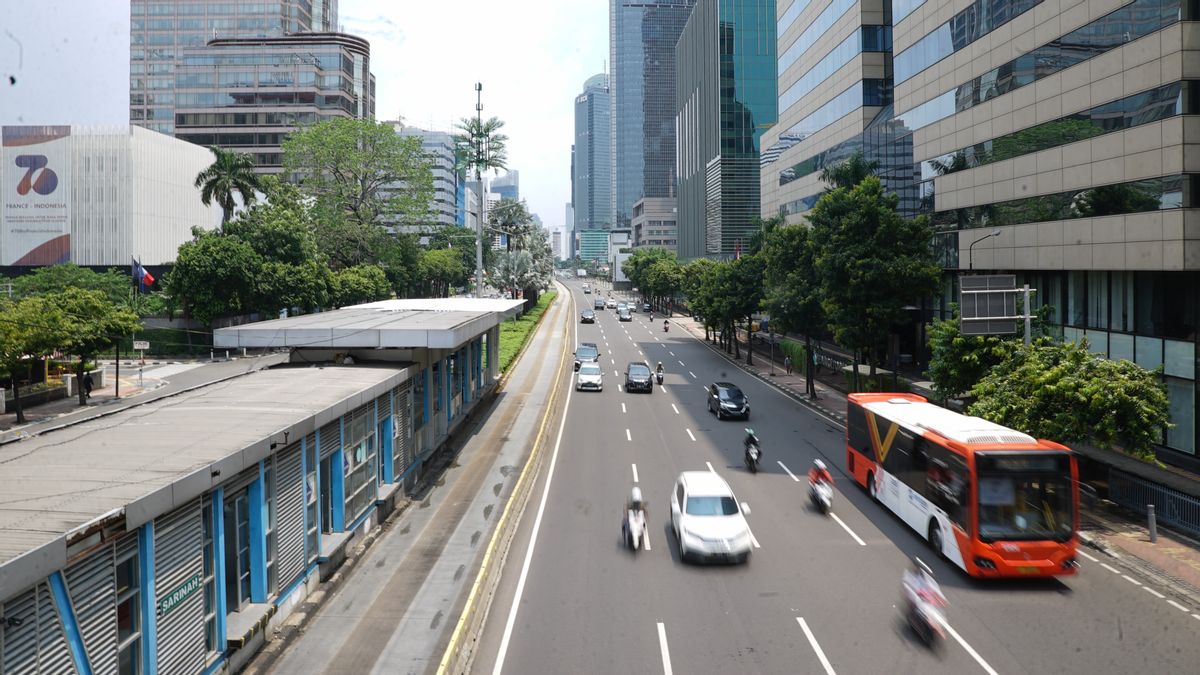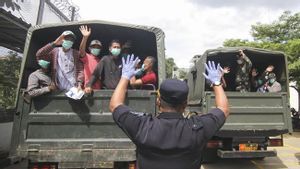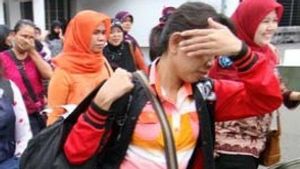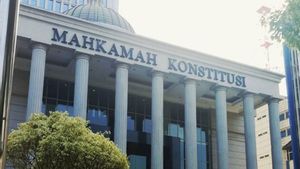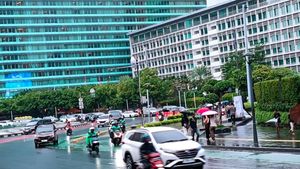JAKARTA - The government continues to seek various ways to fight the corona virus or COVID-19. One of them is by means of large-scale social restrictions or what is called physical distancing which is accompanied by a civil emergency policy. However, this decision was considered inappropriate.
Executive Director of the Institute for Development of Economics and Finance (Indef) Tauhid Ahmad said that Indonesia is more suitable for implementing a regional quarantine by referring to Law number 6 of 2018 concerning Health Quarantine.
"Use the Health Quarantine Law with regional quarantine. But the government has to bear more costs. I think it's okay because the situation is like this (emergency)," he said, when contacted by VOI, in Jakarta, Tuesday, March 31.
If you also want to impose large-scale social restrictions, said Tauhid, the government does not need to accompany it with a civil emergency status. This is because physical distancing has a much bigger economic impact in the long run.
"Moreover, using Perppu 23 of 1959 because the economic chain is very limited. The solution will take a long time to overcome this. If it takes longer, the economic impact will automatically be longer.
In addition, said Tauhid, large-scale social restrictions with the status of civil emergency also prevented the community from doing much because there was no guarantee that the settlement of COVID-19 could be handled quickly.
Tauhid said that if the government imposed a regional quarantine, it would have a shocking effect on the economy. Because community activities in the regions have stopped and only rely on the local economy. So, for its implementation, the government's readiness is needed. Especially for food supplies.
"It seems that 'the government can't afford it'," he said.
Although it has a shocking effect, said Tauhid, the regional quarantine has a positive impact on health. This is because cutting off the spread of COVID-19 to other areas and making the resolution of COVID-19 much faster.
"Because the completion of COVID-19 is faster, the recovery process is much faster than large-scale social restrictions with a civil emergency status," he said.
Tauhid said that in the current conditions the government was completely wrong in making a decision between regional quarantine or large-scale social restrictions and the status of civil emergency.
"The ideal quarantine for the area of money is not enough. So in the end use large-scale social restrictions with the status of civil emergency. The government is" unable to provide social assistance, "for food and so on. Finally, such a route was chosen," he said.
The implementation of regional quarantine, said Tauhid, requires a large budget. Because if this rule is enforced, the government is obliged to bear all the needs of the community. However, this would be much better than allowing the COVID-19 outbreak to spread to remote corners of Indonesia.
"It needs a bigger allocation indeed. But than it took a long time to finish, and the economy will take a much longer recovery process. If the area quarantine (deficit) is much bigger. Because in addition, technically it requires TNI / Polri and so on. But the bigger one social assistance and economic incentives, "he explained.
According to Tauhid, prolonging the handling of COVID-19 will worsen the national economy. Therefore, Tauhid assessed that it would be better for the government to issue a larger budget, but there is certainty that the handling of COVID-19 will be resolved quickly.
For your information, the terminology of large-scale social restrictions is in Law Number 6 of 2018 concerning Health Quarantine. In this regulation, there are four types of quarantine, namely home quarantine, regional quarantine, hospital quarantine, and large-scale social restrictions.
The following is an explanation of regional quarantine and large-scale social restrictions, namely:
Regional Quarantine
Art 53
(1) Regional Quarantine is part of the response of a Public Health Emergency.
(2) The Regional Quarantine as referred to in paragraph (1) shall be implemented for all members of the community in an area if from the results of laboratory confirmation there has been spread of disease among community members in the area.
Art 54
(1) The Health Quarantine Official is obliged to provide an explanation to the community in the local area before implementing the Regional Quarantine.
(2) The quarantined area is given a quarantine line and is continuously guarded by the Health Quarantine officials and the Indonesian National Police who are outside the quarantine area.
(3) Members of the community who are quarantined are not allowed to enter the quarantine area.
(4) During the Regional Quarantine period, it turns out that one or more members in the area is suffering from an ongoing Public Health Emergency, then isolation measures are taken and immediately referred to the hospital.
Art 55
(1) While in the Regional Quarantine, the basic necessities of life for people and food for livestock in the quarantine area are the responsibility of the Central Government.
(2) The responsibility of the Central Government in implementing the Regional Quarantine as referred to in paragraph 1 is carried out by involving the Regional Government and related parties.
Large-Scale Social Restrictions
Art 59
(1) Large-scale Social Restrictions are part of the Public Health Emergency response.
(2) Large-scale Social Restrictions are aimed at preventing the spread of an ongoing Public Health Emergency between people in a certain area.
(3) Large-scale Social Restrictions as referred to in paragraph (1) shall cover at least:
a. school and work vacations;
b. restrictions on religious activities; and / or
c. restrictions on activities in public places or facilities.
(4) The implementation of large-scale social restrictions shall coordinate and cooperate with various related parties in accordance with the provisions of laws and regulations.
The English, Chinese, Japanese, Arabic, and French versions are automatically generated by the AI. So there may still be inaccuracies in translating, please always see Indonesian as our main language. (system supported by DigitalSiber.id)
